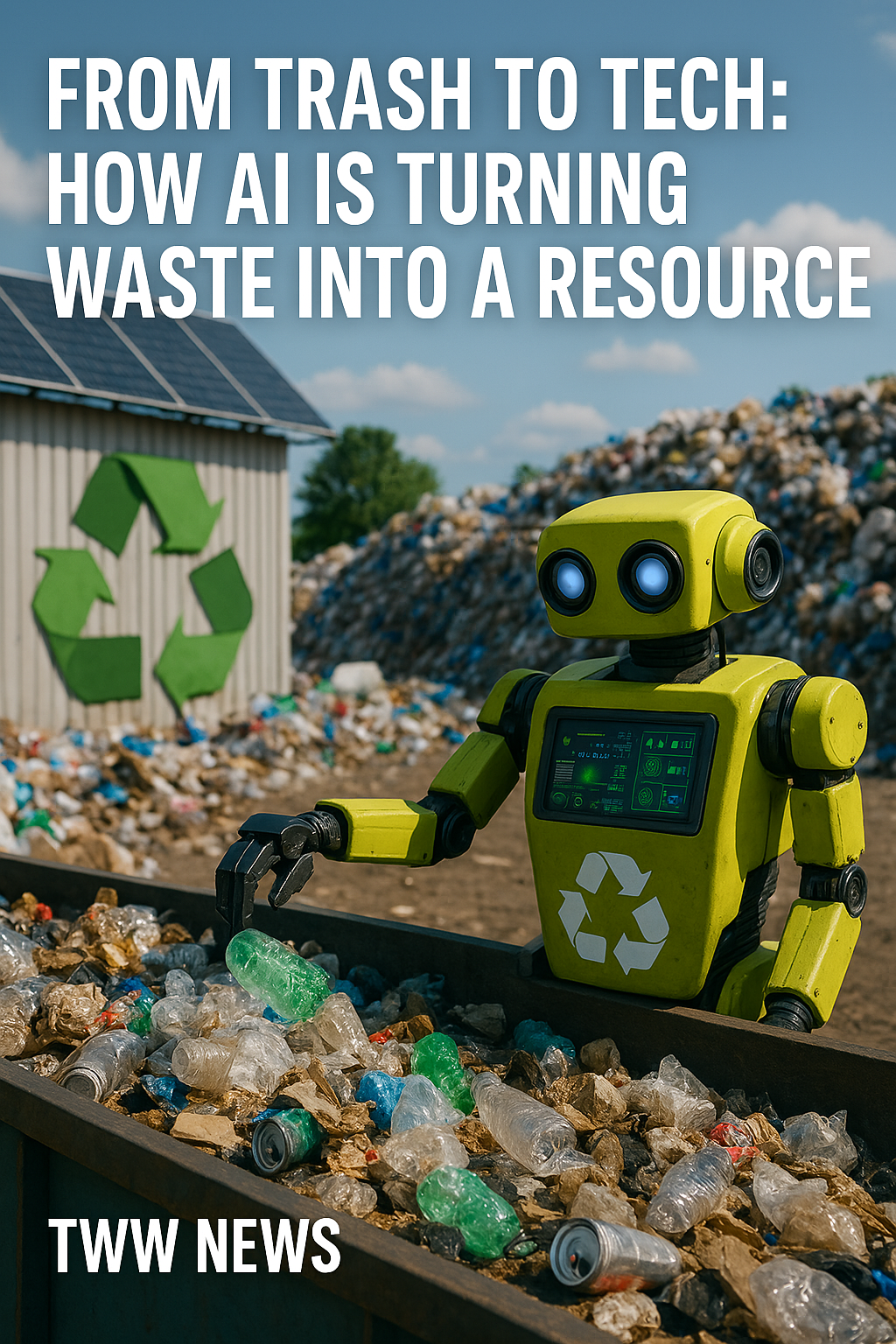In a world racing against climate change and riding the wave of digital acceleration, a surprising alliance is forming: artificial intelligence and garbage. From plastic bottles in Jakarta to food scraps in Nairobi, cities and startups are deploying AI systems to transform waste from nuisance to economic asset.
🛠️ The Rise of Smart Waste
At the forefront is “smart waste” infrastructure—where autonomous robots sort recyclables, machine learning models decode local recycling behaviors, and predictive systems help prevent landfill overflows. These aren’t just gadgets—they’re blueprints for circular economies.
- 🇫🇮 In Espoo, Finland, AI-powered scanners sort compostable material in real time, leading to a 35% spike in compost recovery and a measurable drop in methane emissions.
- 🇮🇳 In Pune, India, an image-recognition mobile app is teaching users to segregate household trash—an initiative now popular in schools and small businesses, proving that low-cost tech can deliver high-impact results.
🔍 Not Just Clean Streets—A Cleaner Future
The real story is bigger than spotless sidewalks. It’s about redefining waste as a raw material—shifting from disposal to regeneration. By integrating AI into municipal systems, cities are laying foundations for regenerative economies that rethink what’s worth keeping.
“We’re teaching machines to see value in what society throws away. It’s not just recycling—it’s rethinking what’s worth keeping.”
— Leila Hammond, CEO of LoopMind Robotics
⚠️ But Progress Isn’t Perfect
Critics warn of algorithmic bias in waste classification, digital divides in infrastructure access, and the carbon costs of AI itself. Without parallel investments in public education and inclusive design, green innovation risks becoming a privilege rather than a solution.
🌍 A Path Forward for High-Tech + High-Trust Ecosystems
Despite these tensions, climate entrepreneurs and urban planners see promise. This tech-trash convergence isn’t just about sleek robotics—it’s about scalable sustainability rooted in community trust, equity, and radical transparency.

